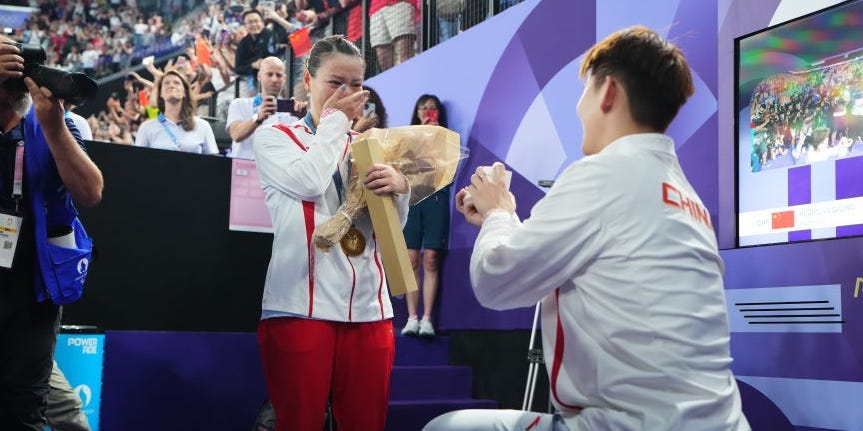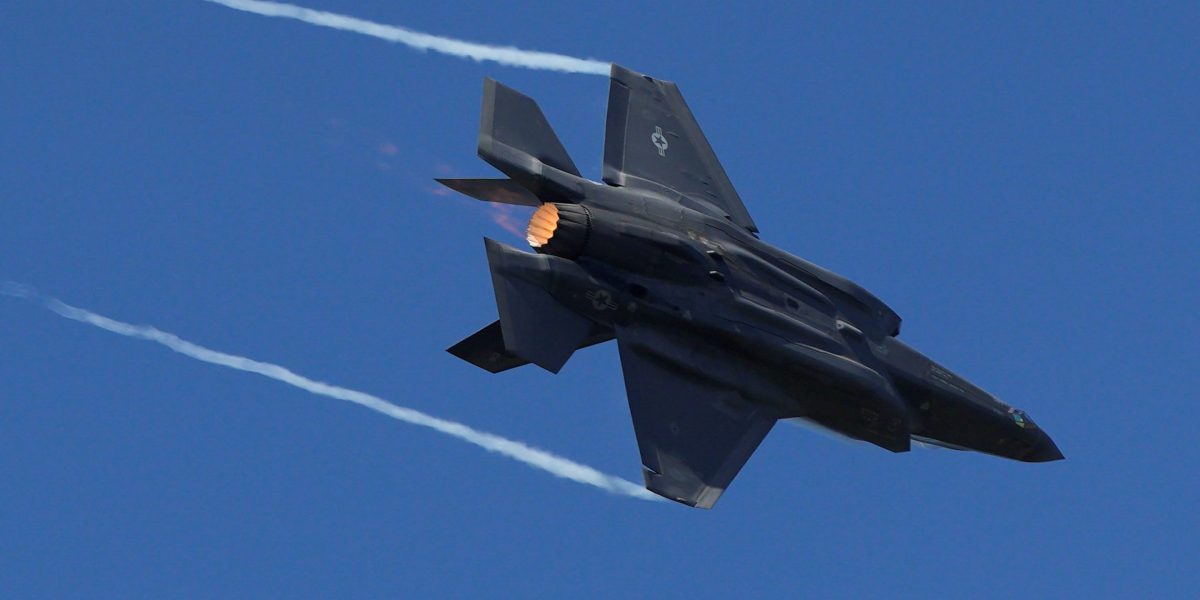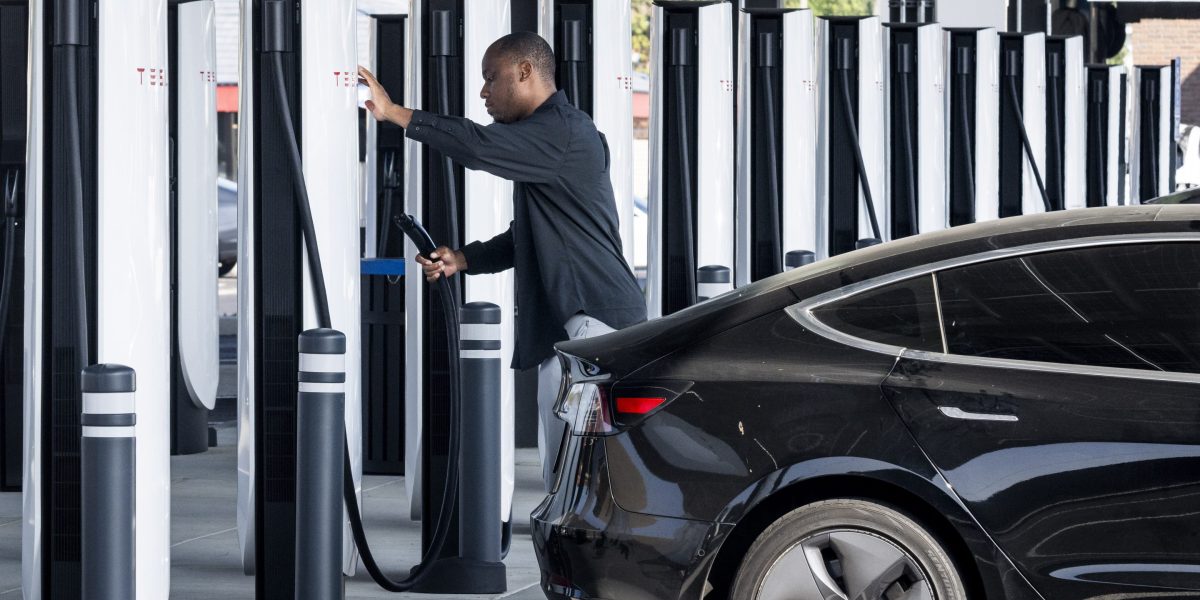There are 17 known couples participating in this year’s Olympics in Paris, and they are having a moment.
For some, the Olympics has inspired them to take their relationship to the next level.
Chinese badminton stars Liu Yuchen and Huang Ya Qiong got engaged after Huang won gold in the mixed doubles.
Meanwhile, Argentine handball player Pablo Simonet proposed to his field hockey girlfriend Maria Campoy.
Others have enjoyed joint success in their respective fields.
Fencers Olga Kharlan and Luigi Samele both won bronze for their countries, while Italian swimming-fencing fiancés Gregorio Paltrinieri and Rossella Fiamingo took it a step further and won medals in the same hour as each other.
There was even a potential lovers-to-enemies-back-to-lovers storyline, with rumored exes Katerina Siniakova and Tomas Machac winning gold at the tennis mixed doubles together.
Clive Brunskill/Getty Images
Competing in such a highly-charged environment as the Olympics might sound daunting for anybody, let alone for those doing it while in a committed relationship with someone as competitive as them.
But that doesn’t mean these relationships are doomed, said clinical psychologist Isabelle Morley. They may even become stronger.
“Talk about a great opportunity for intense social bonding,” said Morley, who provides individual and couples therapy in Boston.
“It’s an incredible shared experience to have.”
Christian Petersen/Getty Images
Morley told Business Insider that being an Olympic couple is a unique experience—somewhat like being a celebrity.
“Even in the best of relationships without media attention, it’s hard to not feel a little bit left behind if it seems like your partner is excelling and getting validation in a way that you aren’t.”
The media attention can also prompt reflection and analysis of your relationship more than is probably helpful, and it would be really important for Olympic couples to be able to talk about that, Morley continued.
Tim Clayton – Corbis/Getty Images
Another potential hurdle in the relationship is the extensive time the partners spend apart during training sessions.
In a 2022 interview published on FC Bayern Munich’s website, German soccer player Lea Schüller and her partner, Austrian sailor Lara Vadlau, talked about competing in the Olympics for the first time together.
“I find it really helpful because both of us understand what you have to do for your sport, that you’re away a lot and don’t see each other that often. Otherwise, it would be really hard,” Vadlau said.
“On the other hand, if I wasn’t a sportswoman we could see each other a lot more often,” Schüller said.
Wally Skalij/Getty Images
Morley agreed that being apart like that could take a toll.
“At the Olympics, they’re focused fully on themselves and their performance — as they should be — and that could mean they can’t really fully be each other’s emotional support at the time.”
Some couples work around that by training together, like former British Olympic triathletes Stuart Hayes and Michelle Dillon.
“The great thing about being a pro-athlete triathlon couple is you can train together and structure your day around each other rather than against each other,” they said in an previous interview.
Jacopo Raule/Getty Images
Speaking about the issues or outsourcing it to a third party like a therapist, family member, or friend could help process difficult feelings that could hinder the relationship, said Morley.
In Morley’s opinion, however, it is very possible for couples to come out of the Olympics stronger than ever — together and as individuals.
“There is so much room for individual work and growth if you’re in this situation,” she said. “Why is this getting to me so much? Is their success actually eclipsing me and making me less valuable in this relationship, or is that my own stuff that I have to work on? Am I not seeing myself having enough value just being a person in this relationship?”
What is more, the shared experience of going together to the highest competition in the world is one that cannot be forgotten easily.
“Not just the wonderful outcome with all of the bells and whistles, but to have someone notice the bad parts of it — training however many hours a day, crying at night because they’re not feeling ready, wondering if they should back out fighting with teammates — we haven’t seen any of that, but their partner has.”
“And that’s incredible.”



